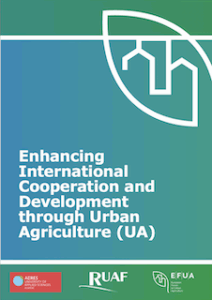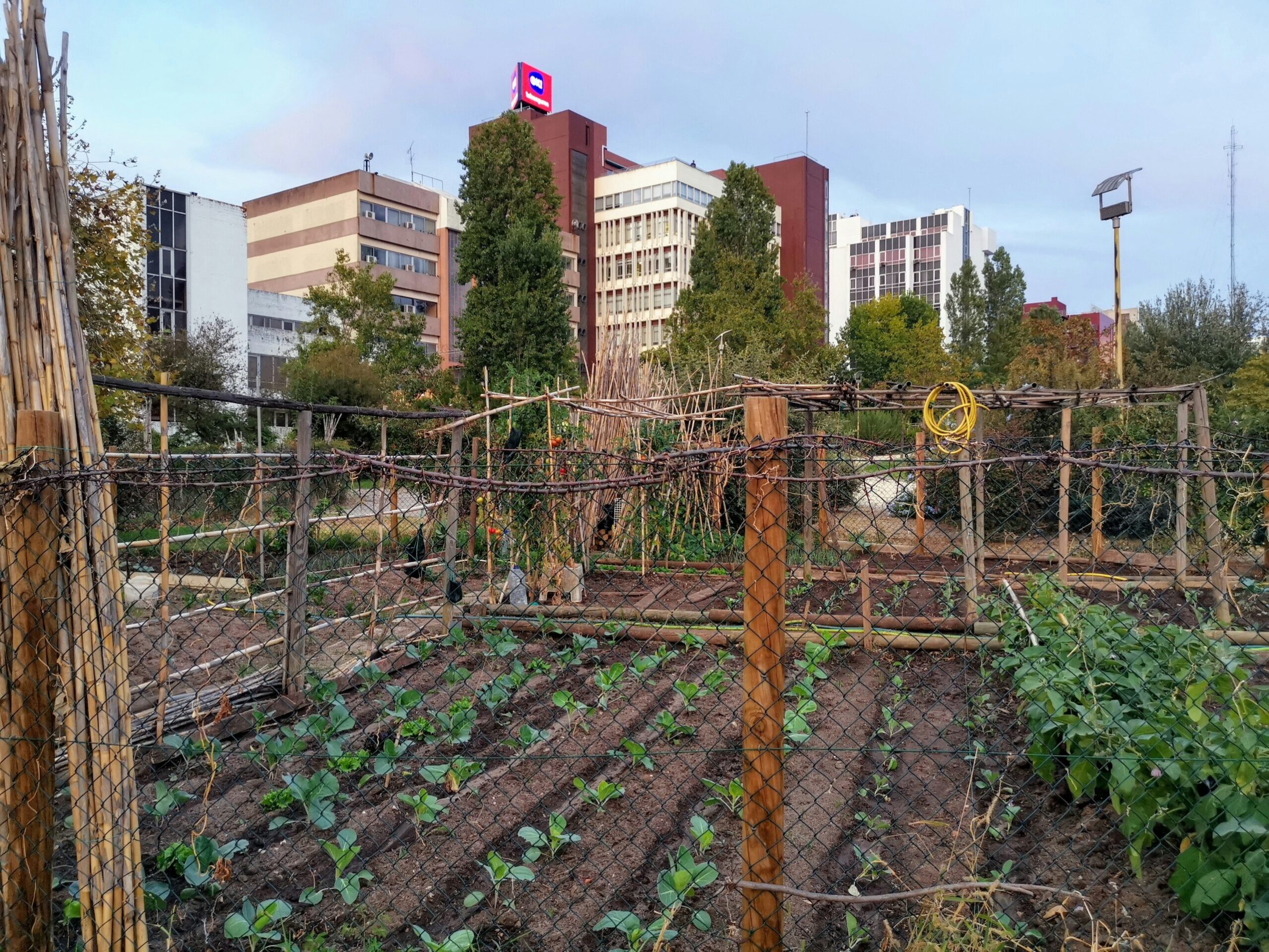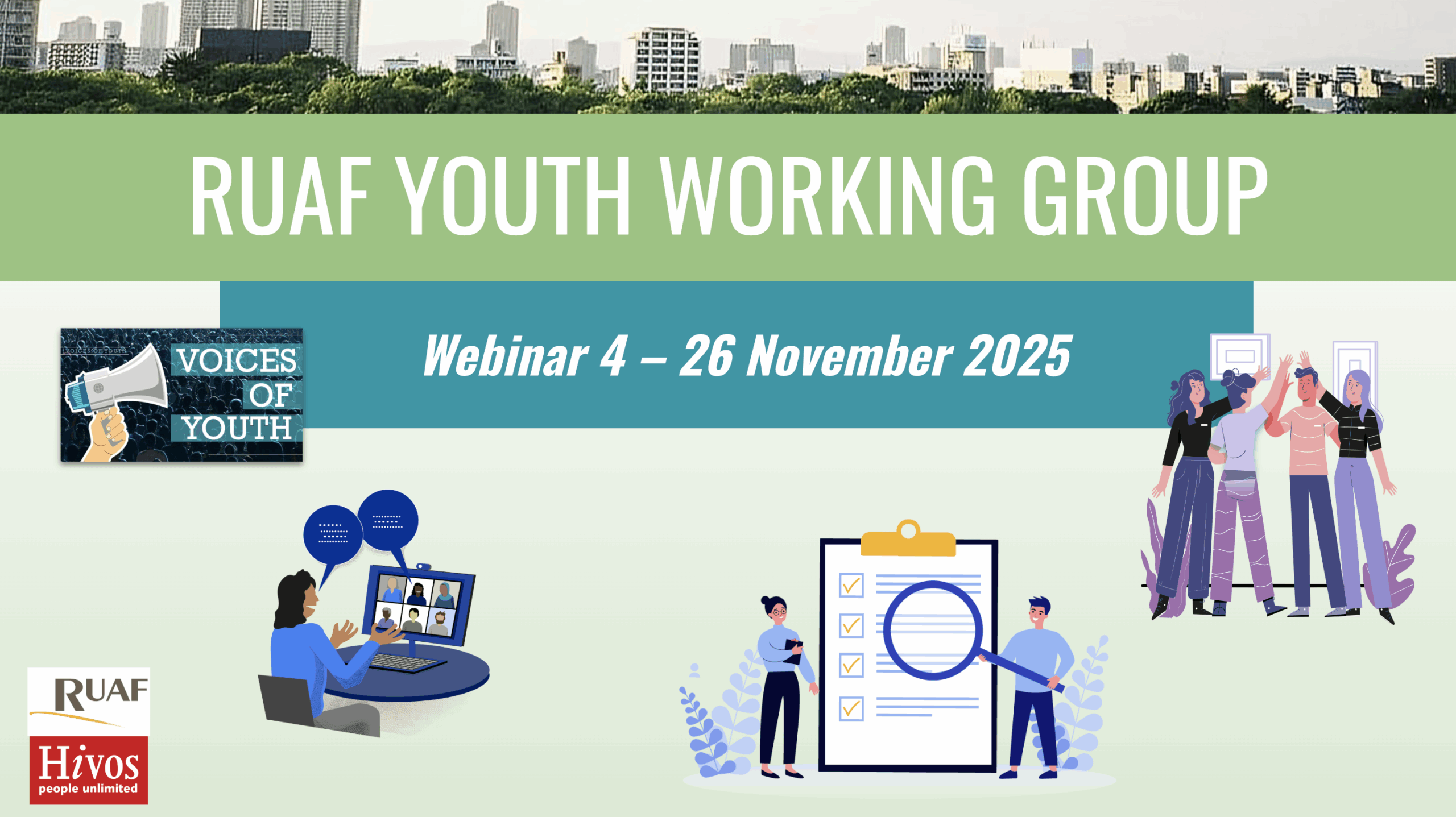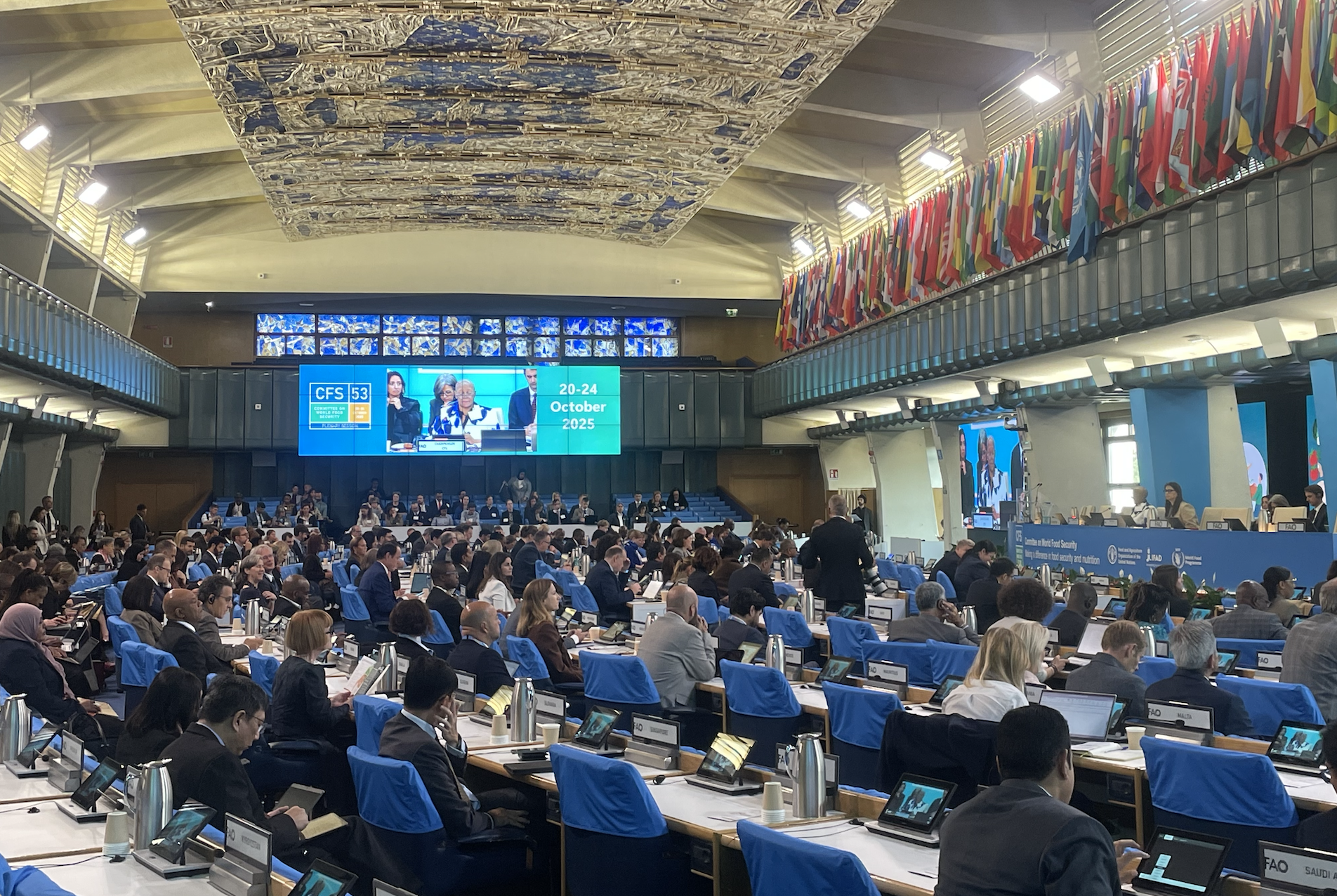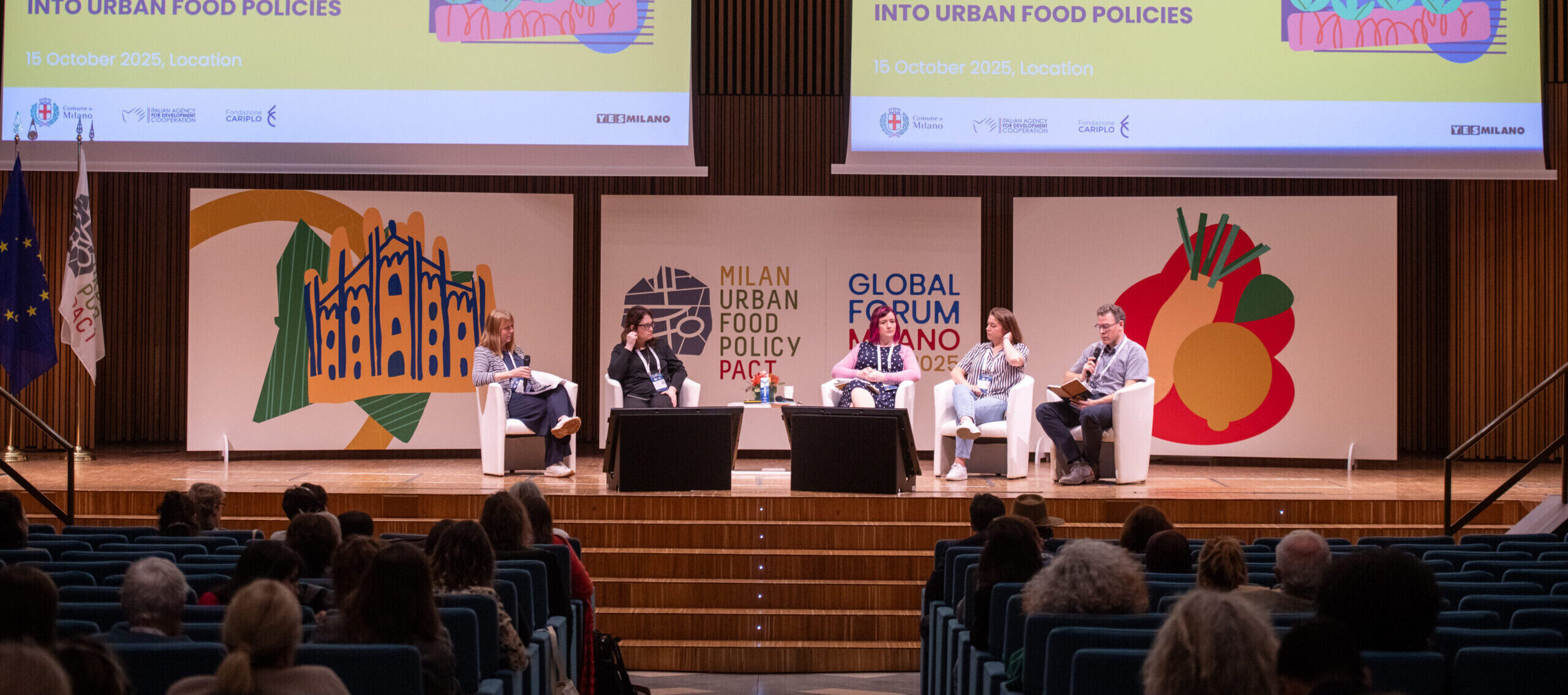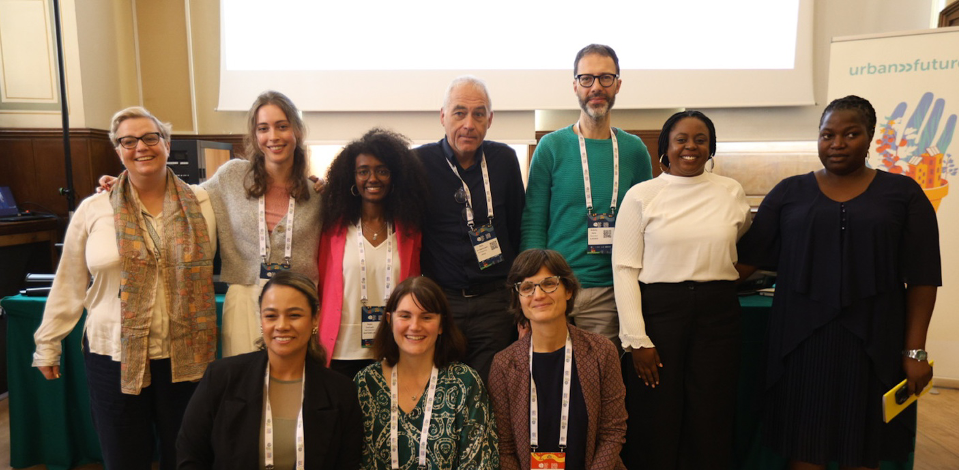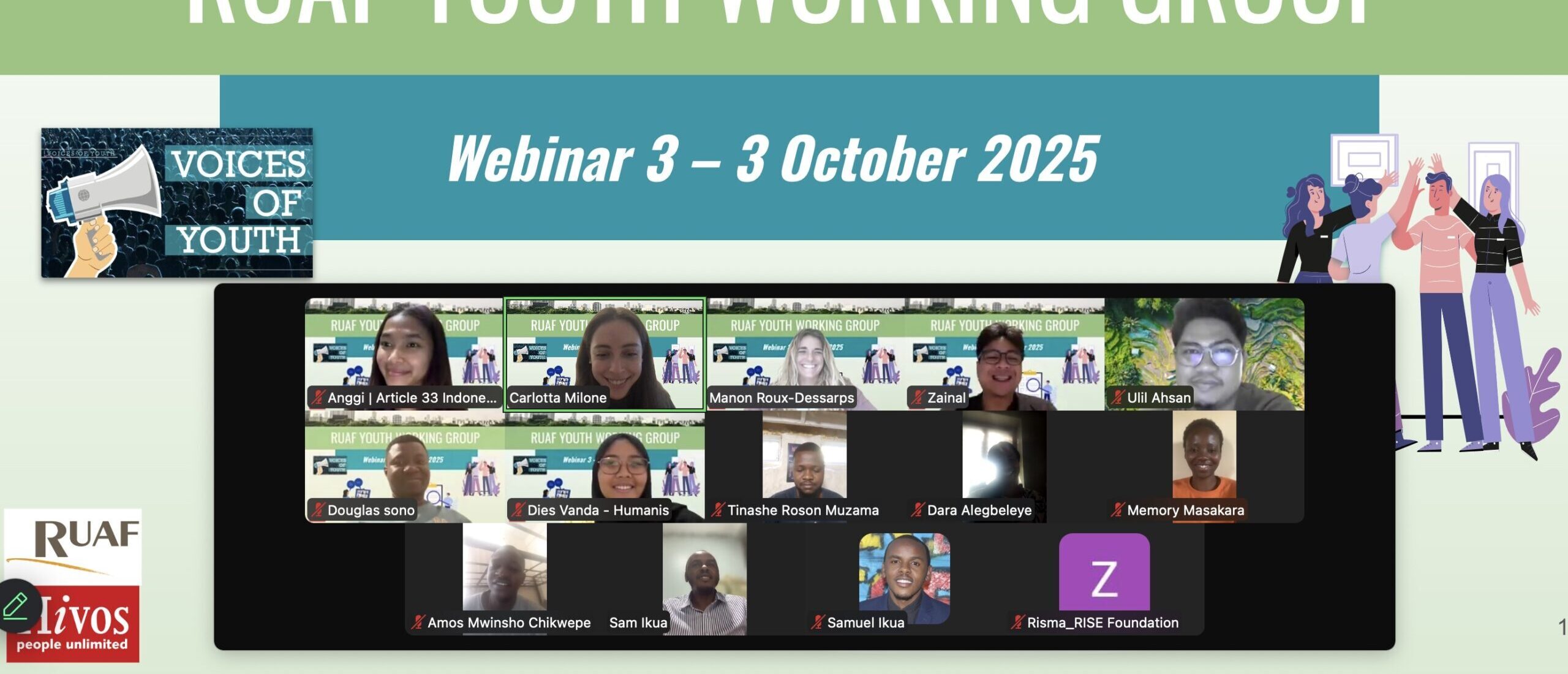RUAF, in collaboration with Aeres University of Applied Sciences Almere and under the EU-funded European Forum for Urban Agriculture (EFUA) project, is calling for greater international cooperation to advance Urban Agriculture (UA) around the world. This includes establishing a global observatory and facilitating exchanges between universities in the Global South and Global North, as outlined in a recent policy brief.
Urban Agriculture is more than growing food. It’s a powerful, multi-dimensional tool that contributes to a range of policy goals: improving health and wellbeing, reducing environmental impact, creating jobs, enhancing community cohesion, and boosting urban resilience.
Despite these benefits, UA is still underutilised and underrecognised around the world, because a range of systemic barriers limit its development. Overcoming these barriers requires stronger coordination and collaboration—not only within cities and countries but also between them.
The brief, entitled Enhancing international cooperation and development through urban agriculture (UA), recommends a set of mechanisms to strengthen the integration of UA in international cooperation and sustainable development. For each mechanism, the brief outlines how specific actors can engage, offering practical pathways to embed UA into relevant strategies and actions.
Clear calls to action are provided for a wide range of stakeholders—from national and local governments to the European Commission, civil society organisations, development banks and agencies, city network coordinators, NGOs, UN agencies, research networks, universities, and businesses of all types and sizes throughout the food system.
Towards global cooperation on Urban Agriculture
Urban Agriculture is a catalyst for inclusive and sustainable urban development—but it will only reach its full potential through international collaboration, knowledge exchange, and targeted investment. We need to move from isolated initiatives to a truly global effort. — Manon Roux-Dessarps
Preparation of the policy brief was led by Manon Roux-Dessarps, with support from Jess Halliday (RUAF) and Sara Smaal and Henk Renting (AERES). Drawing on the work under the EFUA project and wider research, the policy brief identifies eight critical barriers to advancing UA globally. It also proposes six practical mechanisms to overcome them and promote meaningful collaboration at local, national, and international levels.
Eight key barriers to scaling UA:
- Policy and regulatory constraints
- Lack of high-quality data
- Inadequate global financial support
- Limited UA educational opportunities
- Knowledge and technology gaps
- Infrastructure limitations
- Lack of awareness and public engagement in UA
- Lack of recognition of the potential of UA for vulnerable communities
Six mechanisms to unlock the global potential of UA:
- Creating a global network or observatory of UA practices and policies
- Enhancing Global South-Global North university & academic network engagement
- Fostering global UA public awareness and engagement
- Implementing practical projects across the Global North and Global South Network
- Innovation and R&D sharing
- Private sector support
Each mechanism in the brief is paired with the barriers it addresses, an explanation of how it works, and a real-world case study, showcasing either direct application or a comparable best practice.
For example, barrier 3, “Inadequate global financial support”, can be tackled through mechanism 6, which includes several actions such as private companies partnering with multilateral development banks to establish a digital platform connecting leading financial institutions, corporate leaders, and government partners to accelerate urban agriculture financing.
Similarly, barrier 7, “Lack of awareness and public engagement”, can be addressed by multiple mechanisms: mechanism 2 involves national governments and development agencies subsidising schools and universities to develop urban agriculture programmes, while mechanism 3 includes development agencies, public-private partnerships, and private sector CSR initiatives dedicating funds to activities that raise global awareness and foster community engagement in urban agriculture.
Download the full brief here to learn more and explore the recommendations in detail.
